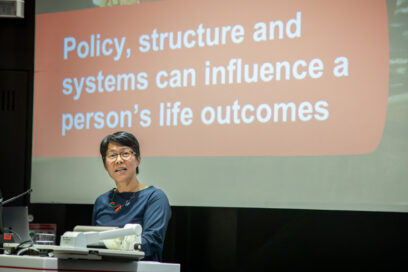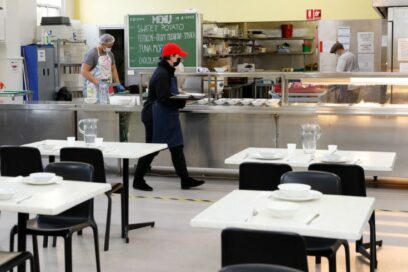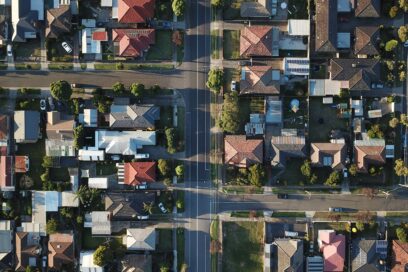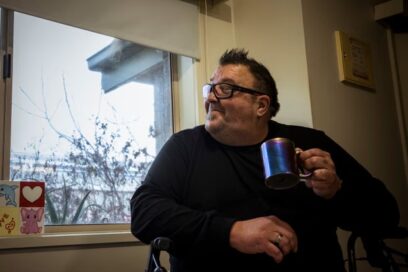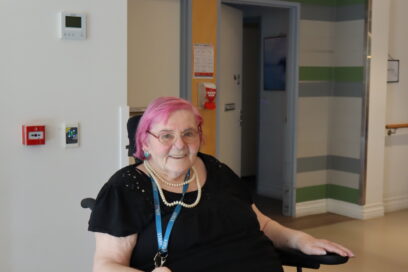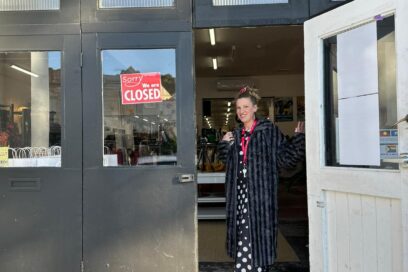Sacred Heart Mission welcomes increased Federal funding for residential aged-care providers, investments toward ending domestic and family violence and sustained funding for homelessness services. However, the Mission is deeply disappointed that the Budget has, yet again, missed a critical opportunity to address the social housing crisis.
“With more than 3.2 million Australians living below the poverty line, the focus of the Budget should have been on investing in social housing, which we know creates jobs and reduces the long-term impacts of disadvantage,” says Sacred Heart Mission’s CEO Cathy Humphrey. “With rents skyrocketing, homelessness is increasing, and will continue to rise without meaningful leadership from the Federal Government,” says Cathy.
While the government has committed to extend Equal Remuneration Order (ERO) supplementation for homelessness services, which was due to be cut in June, it is just a drop in the bucket when it comes to battling the severe lack of publicly available housing in each state.
In response to the findings of the Royal Commission into Aged Care, Quality and Safety, the Federal Budget has earmarked $17.7 billion over five years for aged care. However, money alone will not address this complex issue. While the government has accepted many of the commission’s recommendations, structural change will not be felt until the second half of 2022 and much later.
“Immediate changes for those receiving care, and support for staff, must happen now to prevent abuse and neglect across the sector, as well as to address staff shortages and burnout,” says Cathy.
The budget does, however, include an increase to the Homelessness Supplement for residential aged care. Sacred Heart Community, Sacred Heart Mission’s residential facility for older people who have experienced chronic homelessness and disadvantage, receives this vital supplement.
“This increase will ensure that Sacred Heart Mission can continue to provide quality care and accommodation to some of the most disadvantaged ageing members of our community” says Cathy.
Our key takeaways
- The Federal Government has, yet again, missed a crucial opportunity to address the severe shortage of social housing and to increase income support so people can afford rising rents.
- The budget includes a welcome increase to the Homelessness Supplement for residential aged care providers, who house residents with a long-term history of homelessness. This will positively impact the Mission’s Sacred Heart Community.
- Announced a few days ahead of the Budget, the Federal Government committed to extend Equal Remuneration Order (ERO) supplementation for homelessness services, which was due to be cut in June. This means the sector will avoid a $56 million cut to homelessness service delivery across the country – $23 million cut to services in Victoria.
- An additional $1.1 billion of investments into flexible funds for women escaping violence. This includes $261.4 million for a new two-year national partnership agreement with the states to provide a modest increase in funding frontline family, domestic and sexual violence services.
- The budget provides some additional support to single parents and first home buyers by allowing single parents to purchase a home with a 2% deposit, and expanding contribution amounts for the First Home Super Saver Scheme. Unfortunately, these measures will only provide assistance to small numbers of families, who are primarily middle income earners. It does nothing to support low income families who are already struggling to access secure and affordable housing. It will also not make housing affordable for the broader community, and if anything could create additional housing stressors on program recipients if their mortgage repayments are unaffordable.
- Significant personal tax cuts, at a cost of $7.8 billion to the government, for low and middle income earners – but people living in deep poverty on very low incomes will see very little benefit; particularly with no increases to income support payments.
- Significant investment in mental health – including $2.3 billion for suicide prevention and mental health, and in early intervention programs for young people under 25. The heart of the Government’s reform is an $820.1 million investment to create a national network of multidisciplinary mental health treatment centres.
- The JobTrainer program is being extended, providing employers with an extra $1.5 billion to hire 100,000 apprentices and trainees in the next year. However, the Budget has not provided any targeted assistance to help older people who are unemployed, or struggling to get back into the workforce due to the COVID-19 pandemic. It is extremely disappointing that the government has not invested in providing tailored employment services for these groups.







